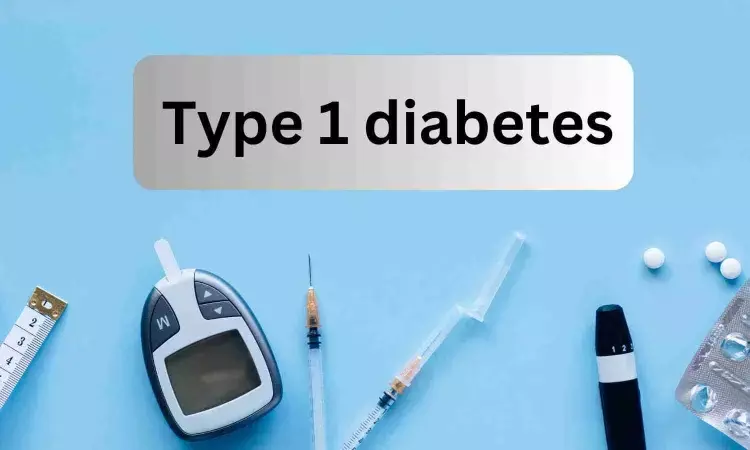- Home
- Medical news & Guidelines
- Anesthesiology
- Cardiology and CTVS
- Critical Care
- Dentistry
- Dermatology
- Diabetes and Endocrinology
- ENT
- Gastroenterology
- Medicine
- Nephrology
- Neurology
- Obstretics-Gynaecology
- Oncology
- Ophthalmology
- Orthopaedics
- Pediatrics-Neonatology
- Psychiatry
- Pulmonology
- Radiology
- Surgery
- Urology
- Laboratory Medicine
- Diet
- Nursing
- Paramedical
- Physiotherapy
- Health news
- Fact Check
- Bone Health Fact Check
- Brain Health Fact Check
- Cancer Related Fact Check
- Child Care Fact Check
- Dental and oral health fact check
- Diabetes and metabolic health fact check
- Diet and Nutrition Fact Check
- Eye and ENT Care Fact Check
- Fitness fact check
- Gut health fact check
- Heart health fact check
- Kidney health fact check
- Medical education fact check
- Men's health fact check
- Respiratory fact check
- Skin and hair care fact check
- Vaccine and Immunization fact check
- Women's health fact check
- AYUSH
- State News
- Andaman and Nicobar Islands
- Andhra Pradesh
- Arunachal Pradesh
- Assam
- Bihar
- Chandigarh
- Chattisgarh
- Dadra and Nagar Haveli
- Daman and Diu
- Delhi
- Goa
- Gujarat
- Haryana
- Himachal Pradesh
- Jammu & Kashmir
- Jharkhand
- Karnataka
- Kerala
- Ladakh
- Lakshadweep
- Madhya Pradesh
- Maharashtra
- Manipur
- Meghalaya
- Mizoram
- Nagaland
- Odisha
- Puducherry
- Punjab
- Rajasthan
- Sikkim
- Tamil Nadu
- Telangana
- Tripura
- Uttar Pradesh
- Uttrakhand
- West Bengal
- Medical Education
- Industry
Study explores whether osteoporosis drug denosumab regenerate beta cells?

City of Hope®, one of the largest and most advanced cancer research and treatment organizations in the United States and a top research center for diabetes and other life-threatening illnesses, is leading a phase 1/2 clinical trial investigating an osteoporosis medication as a way to improve beta cell health in people with early type 1 diabetes.
The study, which is now open, will explore whether denosumab, a human monoclonal antibody that is Food and Drug Administration-approved for the treatment of osteoporosis and bone tumors, can protect and regenerate beta cells, which produce insulin to regulate blood sugar, in type 1 diabetes patients.
Type 1 diabetes arises when a person’s immune system destroys beta cells, and they no longer make the needed amount of insulin to stay healthy. However, in the early stages of type 1 diabetes, some beta cells are still alive and functioning.
The phase 1/2, randomized, double-blind, multicenter clinical trial will evaluate the safety and efficacy of denosumab for improving beta cell function and blood sugar control among patients with early type 1 diabetes, who continue to make some insulin.
“This is an exciting new application of a known medication that, in addition to potentially protecting and/or expanding the beta cells that remain in early type 1 diabetes patients, might also be able to help other patients with diabetes to increase beta cell number and/or function,” said Fouad R. Kandeel, M.D., Ph.D., the Arthur D. Riggs Distinguished Chair in Diabetes & Metabolism Research at City of Hope and the trial’s co-principal investigator. “We are actively working to enroll qualified patients and look forward to seeing where this trial leads us.”
In the bone, denosumab works by inhibiting a protein called RANKL (Receptor Activator of Nuclear Factor Kapp-B Ligand), blocking its interaction with the receptor RANK, thereby reducing bone damage.
“We have found that the same RANKL/RANK pathway can destroy beta cells,” said Rupangi Vasavada, Ph.D., City of Hope associate professor in the Department of Translational Research & Cellular Therapeutics and the trial’s co-principal investigator. “Previous studies in our lab by Nagesha Guthalu Kondegowda, Ph.D. have shown that denosumab can inhibit this detrimental pathway and improve beta cell health by protecting, increasing the number and/or improving the function of beta cells.”
By protecting and preserving beta cell function, the medication could slow down the progression of type 1 diabetes and improve blood sugar control.
Primary funding for this clinical trial comes from Breakthrough T1D, formerly JDRF, the leading global type 1 diabetes research and advocacy organization. The trial is also funded by and part of The Wanek Family Project for Type 1 Diabetes at City of Hope, which seeks to find cures for the disease.
Patients are being recruited at City of Hope in the Los Angeles area and at two other locations: University of Alabama at Birmingham (led by Anath Shalev, M.D.) and Indiana University (led by Carmella Evans-Molina, M.D., Ph.D.). Participants must be adults, ages 18 to 50, with early type 1 diabetes, who are less than five years from initial diagnosis and have residual beta cell function.
Participants will be randomized with a 2:1 treatment to placebo ratio. The treatment group will enroll 30 individuals with the denosumab regimen of 60 milligrams injection given under the skin every three months for a total of four injections. The placebo arm will enroll 15 individuals and be administered with normal saline placebo using the same regimen. The study participants will be followed for 12 months for adverse events and tested for changes in beta cell function and blood sugar control parameters.
Dr Kamal Kant Kohli-MBBS, DTCD- a chest specialist with more than 30 years of practice and a flair for writing clinical articles, Dr Kamal Kant Kohli joined Medical Dialogues as a Chief Editor of Medical News. Besides writing articles, as an editor, he proofreads and verifies all the medical content published on Medical Dialogues including those coming from journals, studies,medical conferences,guidelines etc. Email: drkohli@medicaldialogues.in. Contact no. 011-43720751


